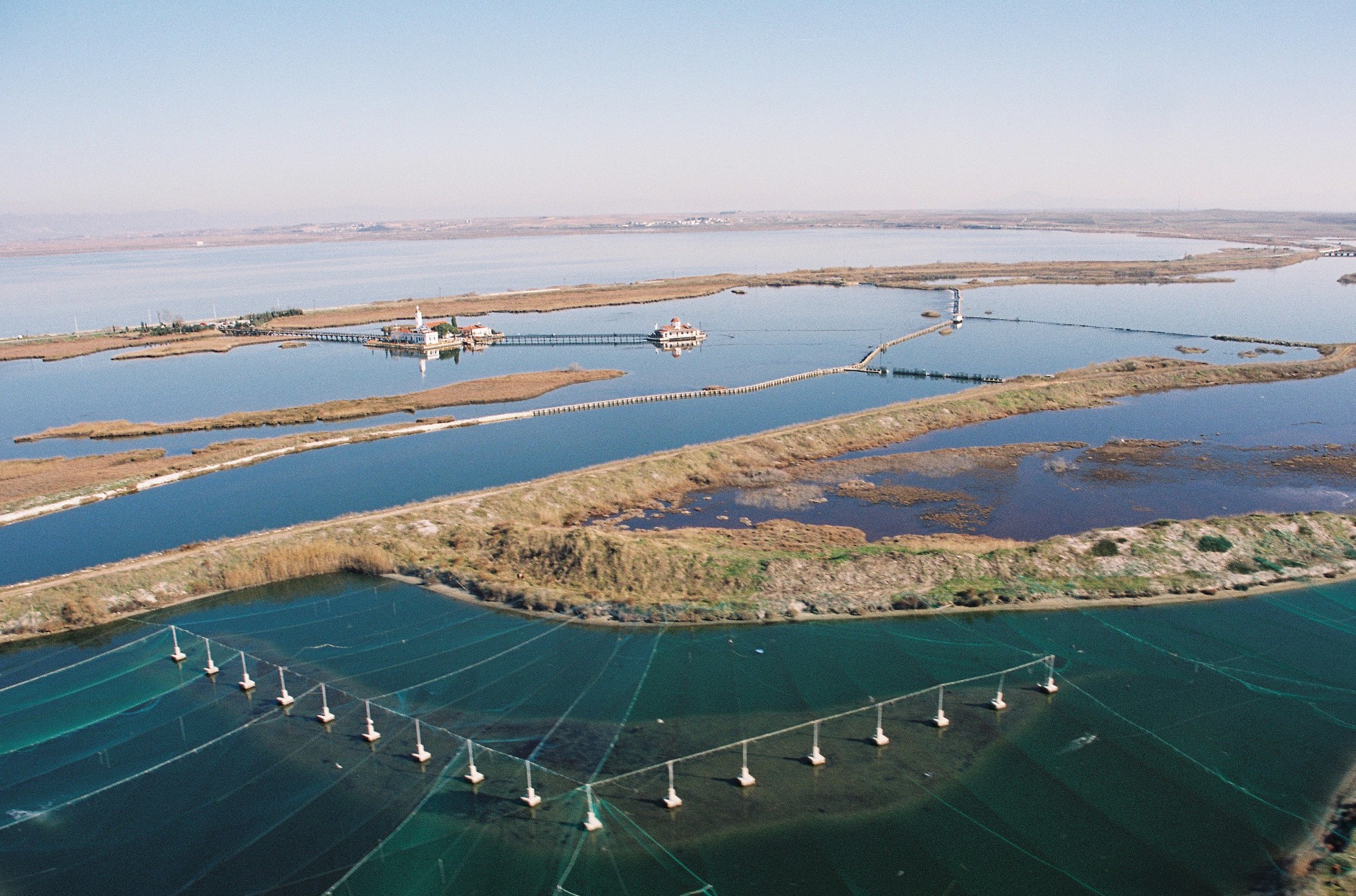Fishing cooperatives in Northern Greece dating from the Byzantine Era

Destructive fishing methods can harm coastal wetlands. However, when locals continue long standing traditional fishing practices that protect coastal wetlands against any potential damaging activities, both the environment and the local community are mutually benefitted.
Did you know that in Greece there are fishing cooperatives that retain their traditional organisation since at the least the Byzantine period (800 AD)? Between the estuarine systems of the rivers Evros and Nestos in Northern Greece, fish from the lagoons is harvested by local co-operatives using the method of permanent fish entrapment devices (barrier fish traps), in combination with fish wintering channels. The channels are protected by nets, to protect the fish from mainly cormorants that can consume as much as 200t of fish during autumn and winter. Fish production management activities are based on centuries-old experience and tradition.
These commercial fisheries depend on migrant fish species, such as the grey mullet. It is caught in the fish traps during the reproductive emigration to the sea during autumn and early winter. And what is noteworthy is that while the main product is a migrant species, local fish fauna serve as an indicator of the environmental quality of the lagoons. The presence, abundance and the fishing habits of the local fish indicate the health of the estuarine systems. There are testimonies from the Classical Era about the good quality of grey mullet harvested from the lagoons of north-eastern Greece.
The president of the fishing cooperatives organises fishermen in groups of 4 or 5 persons, which occupy a hut near the entrance to the lagoons, an arrangement which was common in many Greek coastal wetlands for centuries. The cooperatives’ catches are collectively owned and sold (both locally and to distant markets abroad) and fishermen receive both a monthly salary and a share of the profits, which is distributed equally among them. This system reduces conflicts and diminishes the needs for middle-men.
There is evidence that where well-established and productive fishing cooperatives exist the lagoon ecosystems suffer less human pressures, while with no fishing or unregulated fishing activities, coastal ecosystems have suffered a rapid decrease in environmental quality. The local communities that live on fishing play a major role in the conservation of lagoon ecosystems, protecting them against the development of potentially damaging activities.
To read more on the fishing cooperatives of Northern Greece, please click here.
Source: Fisheries in the lagoons of northern Greece: cultural aspects and indicators of biological integrity by Manos Koutrakis

